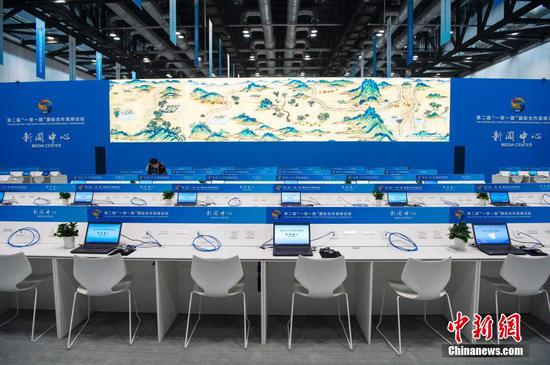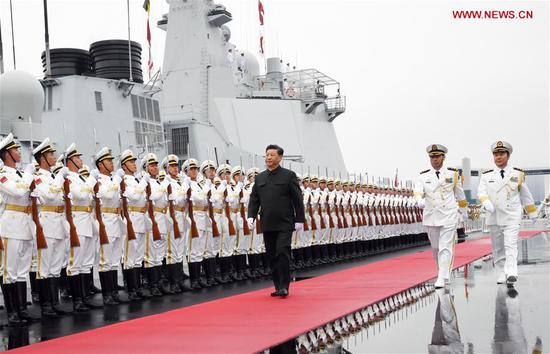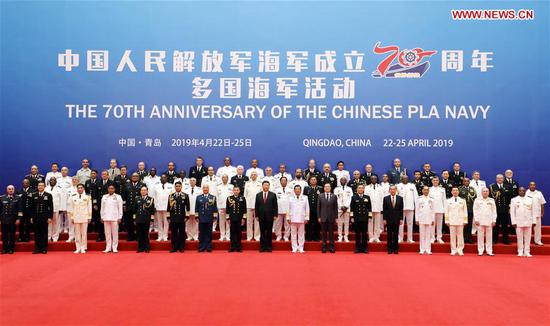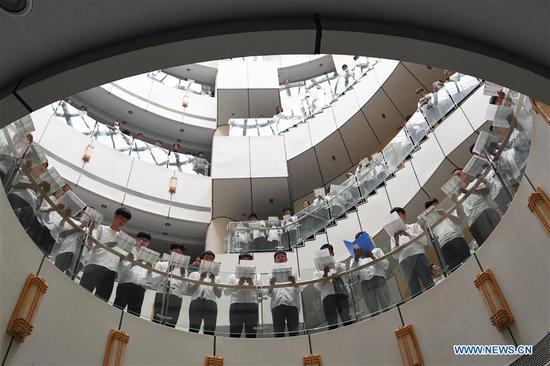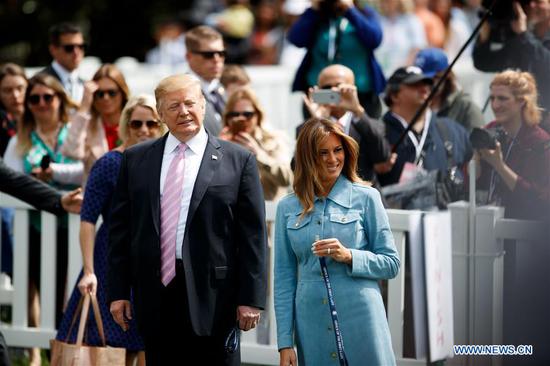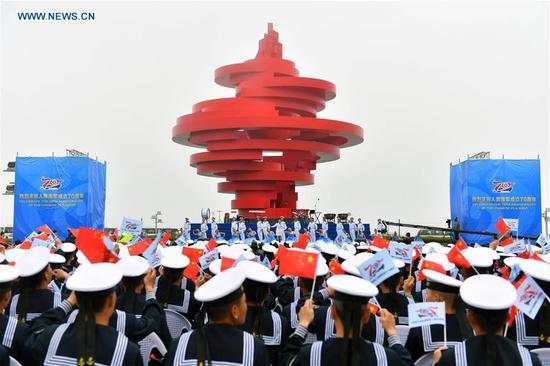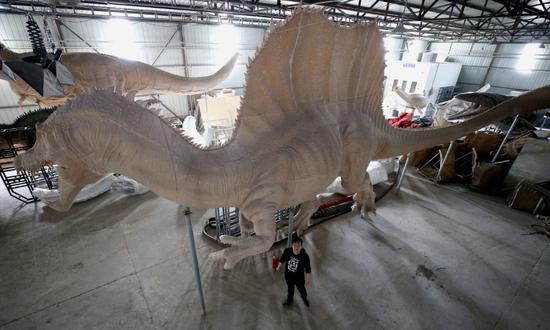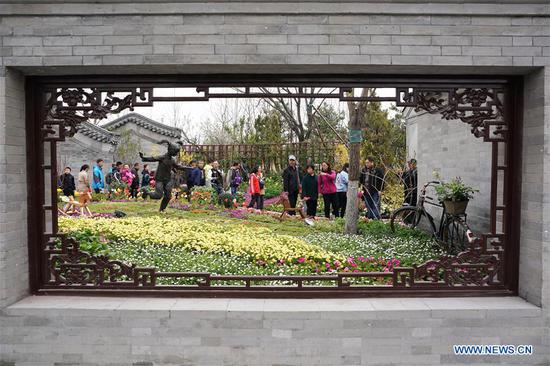
A technician works on the production line of an energy equipment manufacturer in Nantong, Jiangsu Province. (Photo by Xu Congjun/for China Daily)
Fiscal policy will remain the key driver of China's economic rebound, focusing on supporting the real economy as monetary policy becomes more cautious, said analysts.
The amount of tax cut in the first three months was 341.1 billion yuan ($50.75 billion) more than that in the same period last year, and 72.2 billion yuan was due to the new policy taking effect since January, the country's tax authority said on Tuesday.
The reduction was mainly contributed by small and medium-sized companies' corporate tax, and individual income tax, said Cai Zili, director of the Property and Behavior Taxation Department of the State Taxation Administration.
The tax administration expressed confidence in achieving the full-year $250 billion tax-cut goal, a measure to ease the burden on companies and to encourage domestic consumption.
In the first quarter, the government's total tax income was 4.16 trillion yuan, up by 6.1 percent from a year earlier, compared with a growth of 17.8 percent in the first three months in 2018. The individual income tax has dropped 29.6 percent year-on-year, according to the STA.
Chinese top-level policymakers recently sent messages to focus on improving the efficiency of fiscal stimulus and pushing forward structural reforms. Financial measures, as official statements indicated, should better serve the real economy. Meanwhile, the policy tone on monetary policy shifted in a more dovish direction, said economists.
On Monday, the meeting of the Central Committee for Financial and Economic Affairs called for "stepping up with proactive fiscal policy" and "fully implementing tax and fee cuts".
A statement from the meeting stressed the need to strengthen macroeconomic policies' "counter-cyclical adjustment". In terms of the monetary policy, it should neither be too tight nor too loose, and it will be fine-tuned in advance based on changes in economic growth and inflation.
"The slight change in tone is understandable due to the rapid buildup of debt and a potential irrational exuberance in stock markets and big cities' property markets," said Lu Ting, chief economist in China with Nomura Securities.
"China's economy is still in a tug-of-war between headwinds and policy easing," said Lu. The central bank has suggested balancing policy easing with the need to control financial risks, given the rapid rise of debt and volatile stock markets.
Some analysts still expect liquidity injections in the coming weeks, either through targeted cuts of banks' reserved deposits or other monetary policy tools, such as the medium-term lending facilities scheme, to maintain low financing costs.
"The pace of credit growth acceleration will likely moderate, but still accommodate government bond issuance associated with fiscal easing," said Robin Xing, Morgan Stanley's chief economist in China.











